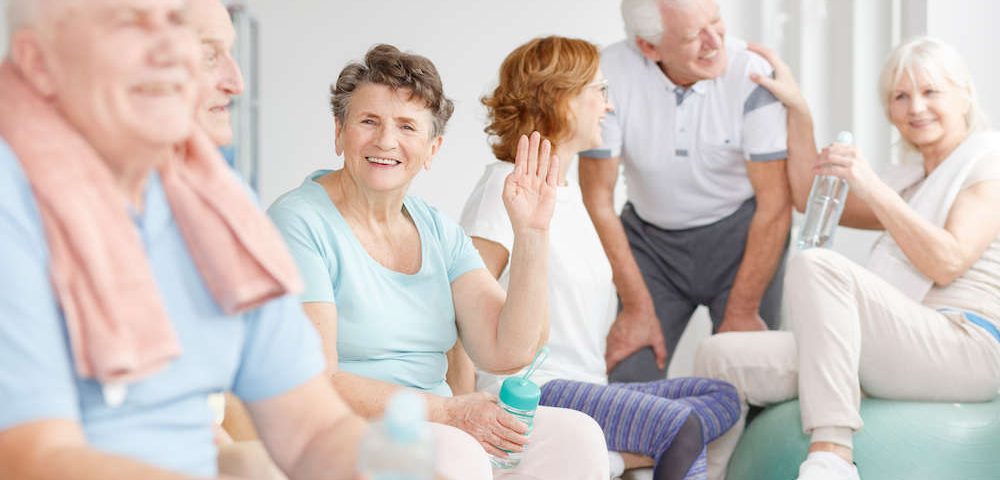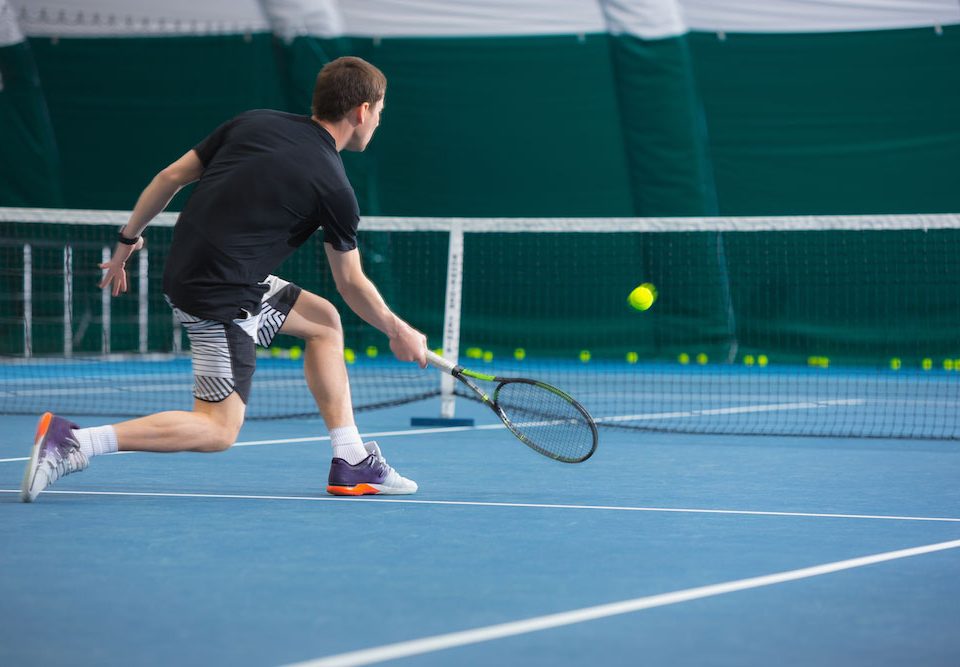
Staying Active After a Hip Replacement
July 31, 2017
Physical Therapy for Orthopaedic Recovery
September 29, 201710 Ways to Help Prevent Falls

Bette Davis said it best, “Old age ain’t no place for sissies.” While the wisdom that comes with age is appreciated, other changes are less than enjoyable. As we age, our bodies often change in ways that are frustrating. We lose muscle tone, some of us get arthritis, and overall we should be a little more careful with the physical activities in which we engage. Even for older adults who are fit and healthy, there is a risk that can be potentially life threatening – falls.
Once every 11 seconds, an older adult is treated in an ER for a fall-related injury. Once every 19 minutes, an older adult dies from a fall-related injury. Those are impressive statistics, and we certainly don’t want anyone reading this post to become one of these numbers. Luckily there are some tips you can keep in mind to prevent falls in your life.
1. Stay Active
The adage, “Use it or lose it,” is true when it comes to fitness and overall body health. Keeping your body in good physical condition is one of the best ways you can prevent a fall. Whether you are working out in a gym, playing a sport, or just getting outside for a daily walk or run, staying active helps to build your muscle tone and keep your joints in good working order.
2. Work on Your Balance
Unfortunately, one of the side effects of aging is losing the ability to stay balanced. Luckily, several low-impact activities can help you regain control of balance within your body, which improves your stability and reduces your risk of a fall. Yoga is an excellent choice for balance retention and offers strengthening poses for beginners and advanced students alike. Tai Chi is another fantastic low-impact choice.
3. Check Your Medication Side Effects
If you are taking medications for chronic health issues, make sure you do some research. Do your medicines have any possible interactions? Do any of them have side effects that could cause a loss of balance? Do any of them interact with alcohol? If you notice changes that could be due to medication, contact your doctor for an assessment – it’s possible there are other options available that won’t make you as unsteady.
4. Do a Self-Assessment
When you are moving around your house, do you find that you need to lean on walls or tables to get around? Do you have to rush to get to the bathroom in a way that could lead to an accidental fall? How steady are you on your feet without the assistance of something to lean on?
If you are leaning on objects to get around, it may be time to invest in a cane or walker. Many people avoid these devices because they believe it is a loss of independence. While the idea of a cane may be unpleasant, we can assure you that a fall causing severe injury will be worse. Being honest about your abilities and what needs to be done to keep you safe is the best way to stay as independent as possible.
5. Maintain Eye and Ear Health
If you have eye and ear issues, it’s possible you don’t even notice them most of the time. For those of us with poor vision or hearing, it’s just part of our daily lives. A change in your ability to see or hear, however, can lead to missing something in your environment that causes you to fall. Inner ear problems can also lead to dizziness and vertigo, which is detrimental to your balance. So keep those annual appointments for eye and ear evaluations to prevent falls.
6. Get Evaluated for Osteoporosis & Osteoarthritis
Unfortunately, both osteoporosis and osteoarthritis increase your risk of falling, but knowing if you have either condition means you can plan for prevention. Those with osteoarthritis need to work extra hard at staying active and moving those joints as much as possible. Osteoporosis patients should also stay active and take recommended supplements to keep their bones strong. If either condition is severe, your doctor can recommend further treatment to reduce pain and risk of a fall.
7. Keep Your Home Safe
Many falls involving older adults happen at home. Often, these falls are easily preventable by keeping your home safe. Adequate lighting should be available in all traffic areas, especially stairs. Watch out for rugs without friction control padding underneath – they have a habit of becoming surprisingly slippery when you are at your most unstable.
Although many older adults are resistant to grab bars in the shower and bathroom, they are surprisingly handy for those times when you lose your balance. Another way to keep the shower safe is to use a hand-held shower head. They’re more convenient and involve less moving than the traditional shower setup.
8. Avoid the “It Won’t Happen to Me” Mentality
Falls can happen to anyone – including you. As we age, a lot of us think, “Oh, age is just a number!” It is just a number, and everyone varies in their abilities as their bodies change, but denial can have some serious consequences. If you notice a loss of balance or a need to hold onto walls and furniture while walking, it may be time for a lifestyle change.
9. Don’t Be Resistant to Change
Change isn’t always bad. Some people see the addition of a cane to their life or grip bars in the bathroom as unacceptable – they would rather pretend that their body isn’t changing and risk a potentially life-threatening injury. But the truth is that small changes are what allow older adults to stay safe and independent over the long run. Plus, a small investment in a cane now could prevent huge medical bills later!
10. Talk to Your Doctor
Anytime you notice a change in your balance, have a question about your medication’s side effects, or just feel that you need some medical advice regarding your overall health, talking to your doctor is a perfect idea. They know your medical history and can help you determine a course of action that will contribute to keeping you fall-free and healthy over the long run.



